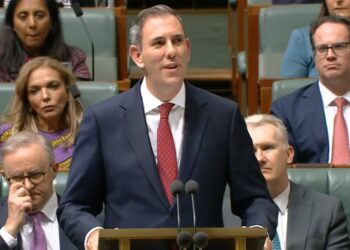The Full Court of the Federal Court of Australia dismissed an appeal brought by the Australian Securities and Investments Commission (ASIC), which had alleged CFS breached the law when it paid CBA to distribute superannuation trust, Essential Super.
ASIC commenced proceedings in June 2020 after Essential Super had been a case study in the Royal Commission into Misconduct in the Banking, Superannuation and Financial Services Industry.
In September last year, Justice Stewart Anderson found the payments made by Colonial to CBA did not constitute benefits within the definition of “conflicted remuneration”.
He added the statutory context of the provisions were focused on situations where a financial adviser had a financial incentive.
“ASIC pursued this case because we were concerned that the arrangements between Colonial and CBA had the potential to influence the choice of financial product recommended to retail clients or the advice given to retail clients. ASIC will carefully consider the judgment,” ASIC deputy chair Sarah Court said at the time.
“ASIC will continue to work to ensure retail clients receive appropriate advice, that aligns with their interests.”
On Thursday morning, the Full Court found Justice Anderson was “correct to conclude the benefits were not conflicting remuneration”.
In addition to dismissing the appeal, ASIC has been ordered to pay the costs of the appeal for CBA and CFS.
ASIC launched the appeal in October 2022, with the corporate regulator concerned that the court’s decision would limit the operation of conflicted remuneration laws introduced in 2012.
“Conflicted remuneration has the potential to cause significant consumer harm because it can prevent consumers from receiving appropriate advice and financial products free of influence,” Ms Court said.
The conflicted and other banned remuneration provisions were introduced in June 2012 as part of the Future of Financial Advice reforms, representing the Australian government’s response to the 2009 inquiry into financial products and services in Australia by the parliamentary joint committee on corporations and financial services.
More to come.




What would be ironic is if the legal fees reimburses to CBA by ASIC are then entered as a line item against the large banks. Let’s hope so.
ASIC loses the case against Colonial and is ordered to pay court costs.
So either the taxpayer loses, or financial advisers who fund ASIC lose due to the industry funding model.
Where is the disincentive for ASIC to get their job right?
ASIC Legal advisers and senior staff must be penalised for not understanding the laws they’re supposed to be enforcing.
Also I love how the courts rule that those laws are only intended for advisers. So the decision is to legislate against advisers and at the same penalise advisers for a case they had absolutely zero to do with. Poetic Justice from the writers of HollowMen except that this is real.
FAAA please lobby the government so that ASIC ends up with some accountability.
Moronic Govt and pathetic ASIC.
Easy to try to re-fight a useless court case ASIC when Advisers are paying the $$$$ bills.
At the same time Jonesy & the QAR are trying to make Conflicted Remuneration / HIDDEN COMMISSIONS via BackPacker call centres Sales Advice the major form of remuneration to Industry Super and the masses.
It’s a total clown circus in Canberra
This sort of legal adventurism – where advisers are crowdfunding ASIC against our will – is exactly why there shouldn’t be an Adviser Levy.
Did teh ASIC Levy (tax) pay for this court case from ASIC?
So, how will this impact any current Class Actions???
“ASIC will continue to work to ensure retail clients receive appropriate advice, that aligns with their interests.”
Unless genuine product advice combined with investment advice is provided, i.e., not intra-fund advice that only advises based on the current product is in place – it will always be inappropriate.
There is no intention by the industry to actually provide high-quality advice and engage individuals to manage their super. Instead, the focus is on making it as opaque as possible.
Broom needs to sweep through ASIC, while the appeal was going on how many unlicenced schemes ripped off the public – need a proactive ASIC.
The big guys can be conflicted but not the little guys.
ASIC need to disclose exactly how many taxpayer dollars have been spent & wasted pursuing this matter.
Will we receive this information?……no.
It’s very easy for ASIC to spend endless amounts of other peoples money with no consequence.
It is unacceptable.
It’s not the general taxpayer who pays for this, it’s 100% us as the cost of enforcement is part of our ASIC levy.
How much of our taxpayers money was wasted on this exercise ie the Appeal? When the money could have been better spent on surveillance instead of doubling down on your pride being hurt?
Not taxpayers money, it is financial advisers in small businesses footing the bill through an industry funded levy. I shudder to think what my bill will be for this financial year. Off to a stellar start so far ASIC. A great business model for ASIC, not so much for advisers.
The only loser out of the above are the advisers that foot the bill through the ASIC Levy. Sad but true, and still waiting for the QAR and Jones to explain the ASIC Levy calculation, not to mention justifying it in the first instance.